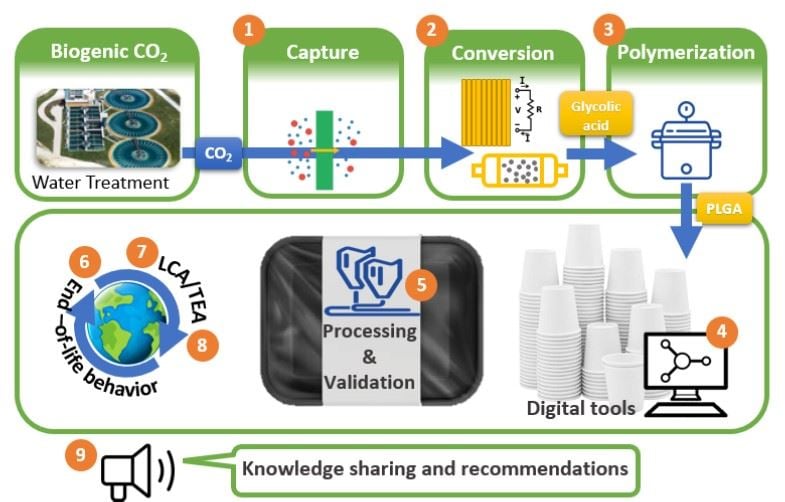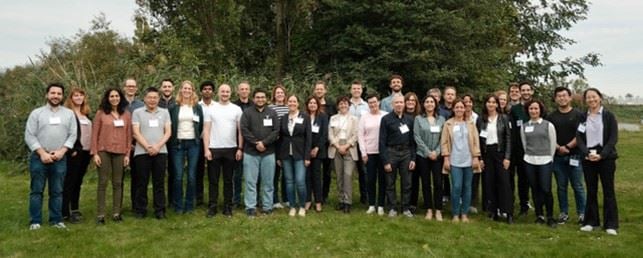HICCUPS aims to convert CO2 from biogas produced at wastewater treatment plants into the sustainable plastic material PLGA (polylactic-co-glycolic acid). PLGA with 80% glycolic acid or more has an excellent barrier against oxygen and moisture and good mechanical properties. It is furthermore recyclable, home compostable, and marine biodegradable. PLGA can be used, for example, as coating material and in molded plastic materials. This makes PLGA an excellent alternative for fossil-based polyethylene.
To demonstrate the entire value chain of biogenic CO2 captured to the final application of PLGA, a strong consortium, led by Avantium, containing 12 partners from industry and academic organizations from a total of 7 European countries are gathered. ACCIONA (Spain), together with Aqualung Carbon Capture AS (Norway) and research partners SINTEF (Norway) and FUNDITEC (Spain) will develop a demonstration plant at a wastewater treatment facility operated by ACCIONA. Aqualung’s membrane technology offers versatility and flexibility in order to tailor solutions for CO2 separation from various sources including flue gas and biogas resulting in high efficiency and better economics at the lowest footprint.
Avantium will apply two of its innovative technologies that can be combined. First, the one-step electrochemical conversion of CO2 to oxalic acid followed by reduction to glycolic acid. Second, the polymerization of glycolic acid into the CO2-based plastic PLGA. In this process step, Avantium will work closely together with research partner VTT (Finland), on the downstream water removal from the glycolic acid, so that the dried glycolic acid can be further polymerized.

WALKI (Finland) and Tecnopackaging (Spain) will investigate the use of the produced PLGA as packaging material, and test its extrusion performance together with its liquid and gas barrier properties. Walki for example will carry out both extrusion and wet coating trials on fibre substrates to produce coated paper and board samples. The University of Ferrara (Italy) will contribute with processability research to determine the optimal conditions for the paper coating.
HICCUPS is a 4-year project and has received funding from the Circular Bio-based Europe Joint Undertaking under the European Union’s Horizon Europe funding programme under grant agreement No 101112455.
To know more, visit the project HICCUPS website


